Overview
Paras Institute of Neurosciences emerges as a premier hub for addressing a spectrum of disorders affecting the Brain, Spinal Cord, and Peripheral Nervous System. Within our institute, a team of distinguished neurology experts pioneers groundbreaking treatments for intricate neurological conditions. Patients and their families receive unwavering support from adept neurologists who harness the forefront of medical innovation to confront ailments spanning from brain tumors and traumatic injuries to paralysis, dementia, and epilepsy.
Sub Specialities
Treatment And Ailments
Alzheimer's Disease
Multiple Sclerosis
Parkinson's Disease and Other Movement Disorders
Anxiety Disorders
Brain Tumor Surgery
Depression
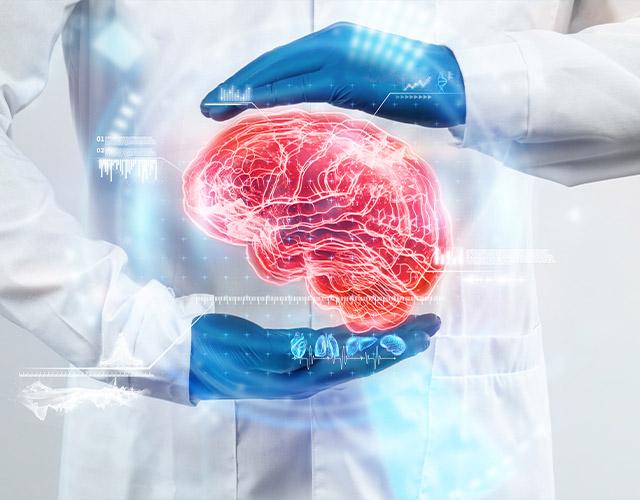
Alzheimer's disease is a progressive neurological disorder characterized by memory loss, cognitive decline, and behavioral changes. Treatment focuses on managing symptoms with medications (cholinesterase inhibitors, memantine), supportive therapies (cognitive training, occupational therapy), and lifestyle modifications to enhance quality of life for patients and caregivers.
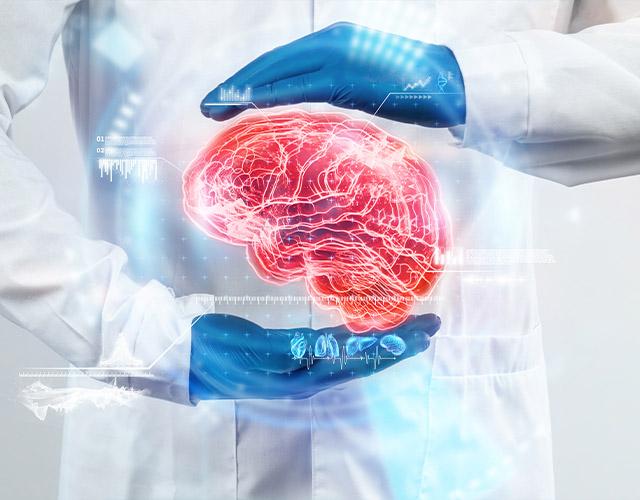
Multiple sclerosis (MS) is an autoimmune disease affecting the central nervous system, leading to inflammation, demyelination, and neurological symptoms. Treatment includes disease-modifying therapies (interferons, monoclonal antibodies), corticosteroids for acute exacerbations, symptom management (physical therapy, muscle relaxants), and lifestyle adjustments to slow disease progression and improve patient function.
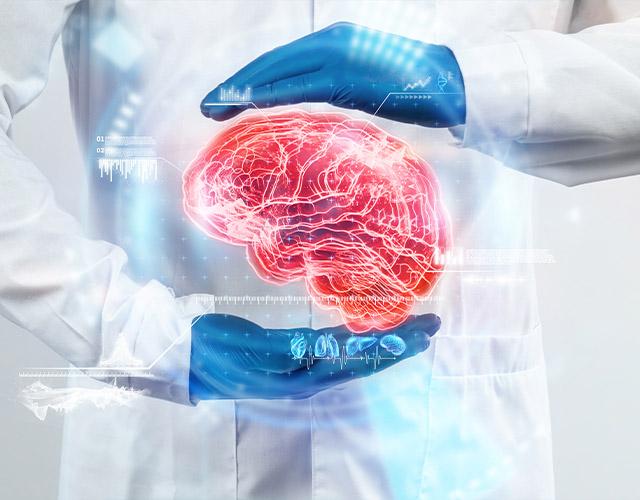
Parkinson's disease is a progressive movement disorder caused by dopamine deficiency in the brain. Treatment strategies include medications (levodopa, dopamine agonists), deep brain stimulation (DBS) surgery to modulate abnormal brain activity, physical therapy to improve motor function, and supportive therapies to manage non-motor symptoms like depression and sleep disturbances.

Anxiety disorders encompass a range of conditions characterized by excessive fear, worry, and avoidance behaviors. Treatment involves psychotherapy (cognitive-behavioral therapy, exposure therapy), medications (antidepressants, benzodiazepines), and lifestyle modifications (stress management, relaxation techniques) to alleviate symptoms and improve overall mental health.
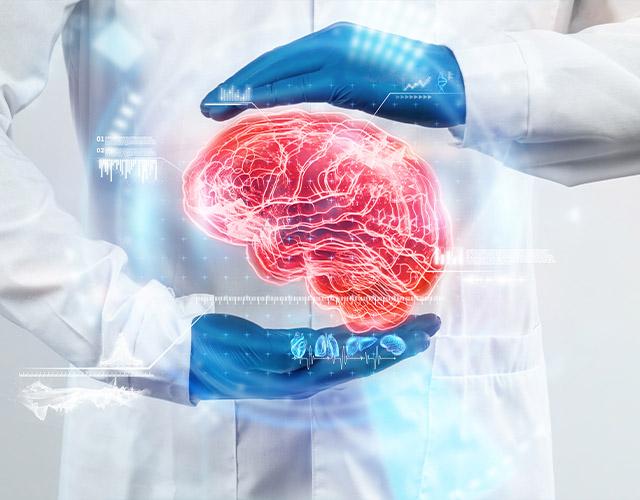
Brain tumor surgery aims to remove benign or malignant tumors from the brain while preserving neurological function. Surgical techniques vary depending on tumor location, size, and type, often followed by radiation therapy, chemotherapy, or targeted therapies to eliminate remaining cancer cells and prevent recurrence.

Depression is a mood disorder characterized by persistent sadness, loss of interest or pleasure, and feelings of hopelessness. Treatment includes psychotherapy (cognitive-behavioral therapy, interpersonal therapy), antidepressant medications (SSRIs, SNRIs), and lifestyle modifications (regular exercise, social support) to alleviate symptoms, improve coping skills, and prevent relapse.
Acquired Brain Injury
Agnosia
Anxiety
Ataxia
Brain Attack
Brain Cancer
Cerebral Aneurysm
Craniosynostosis
CSF Rhinorrhea
Dawson Disease
Acquired Brain Injury

Acquired brain injury results from trauma or non-traumatic events causing damage to the brain, leading to cognitive, physical, and emotional impairments. Rehabilitation focuses on restoring function and optimizing recovery through therapies tailored to individual needs. Early intervention and ongoing support are crucial in achieving the best possible outcomes for patients.
Agnosia
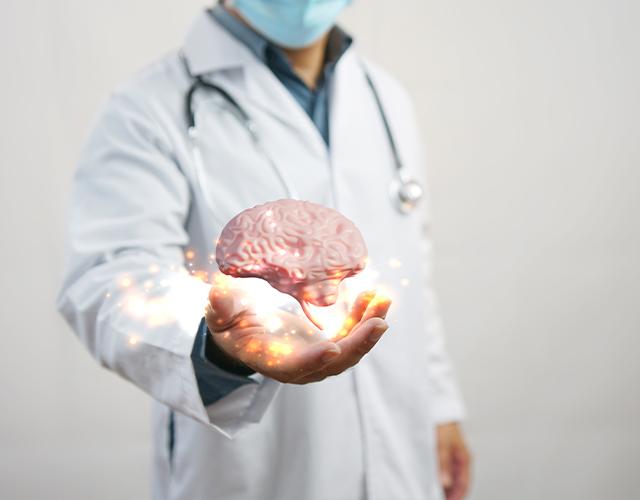
Agnosia is a neurological condition where individuals have difficulty recognizing and interpreting sensory information, such as objects, faces, or sounds, despite normal sensory perception. Treatment involves cognitive rehabilitation to enhance perception and compensate for impaired recognition skills. Supportive therapies aim to improve daily functioning and quality of life for affected individuals.
Anxiety
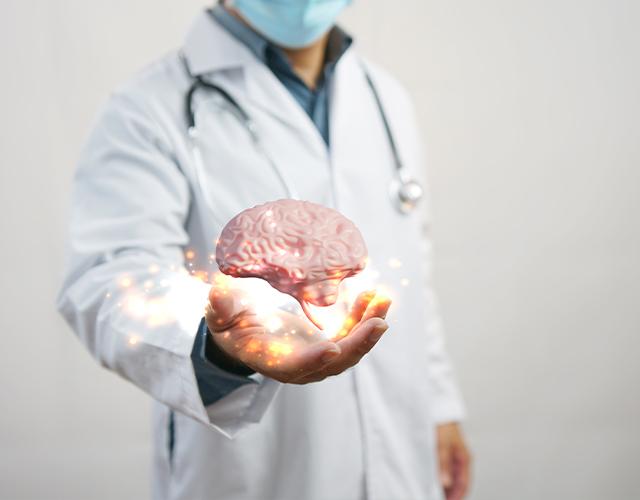
Anxiety disorders involve excessive worry and fear that interfere with daily life, affecting mental and physical well-being. Treatment options include therapy (cognitive-behavioral therapy), medications, and lifestyle modifications. Comprehensive care addresses underlying causes and promotes coping strategies to manage symptoms effectively.
Ataxia
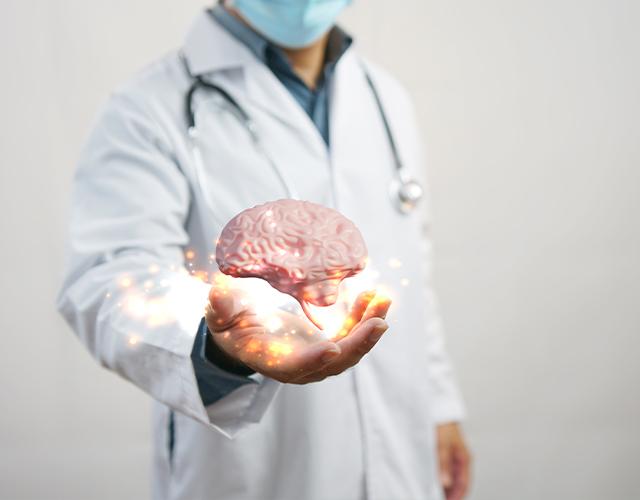
Ataxia refers to a group of neurological disorders characterized by lack of coordination, affecting movements like walking, speech, and fine motor skills. Causes include genetic mutations, stroke, or multiple sclerosis. Management focuses on symptom relief, physical therapy, and assistive devices to improve balance and mobility. Individualized care plans help optimize independence and quality of life.
Brain Attack
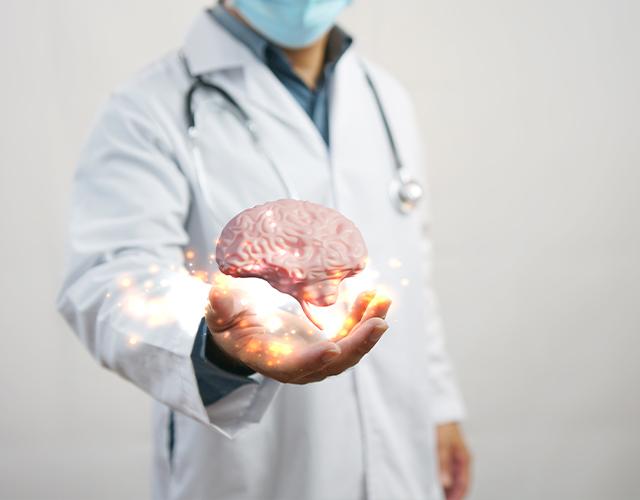
A brain attack, commonly known as a stroke, occurs when blood flow to the brain is interrupted, causing brain tissue damage. Symptoms include sudden weakness, speech difficulties, and vision loss. Immediate medical attention is critical to minimize brain damage and disability. Treatment may involve clot-busting medications, rehabilitation, and lifestyle changes to prevent recurrence.
Brain Cancer
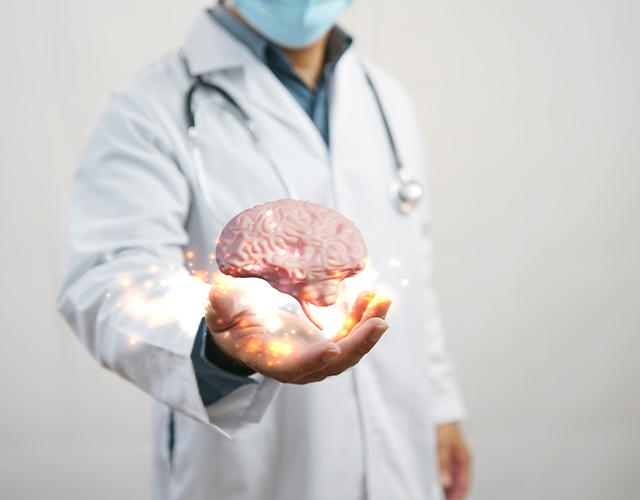
Brain cancer includes tumors originating in the brain or metastasizing from other parts of the body. Symptoms vary depending on tumor location and size, often causing headaches, seizures, and cognitive changes. Treatment options include surgery, radiation therapy, chemotherapy, and targeted therapies. Multidisciplinary care ensures personalized treatment plans to optimize outcomes and quality of life.
Cerebral Aneurysm
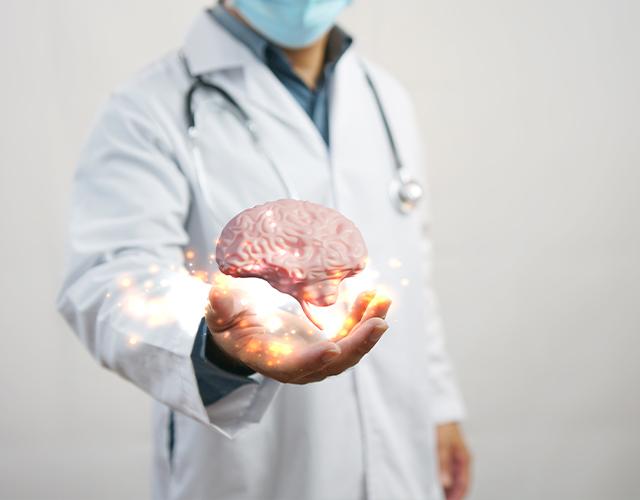
A cerebral aneurysm is a bulge in a brain artery, potentially causing rupture and life-threatening bleeding (hemorrhagic stroke). Risk factors include hypertension and genetic predisposition. Treatment ranges from surveillance for small aneurysms to surgical intervention for larger or symptomatic cases. Early detection through imaging studies is crucial in preventing complications.
Craniosynostosis
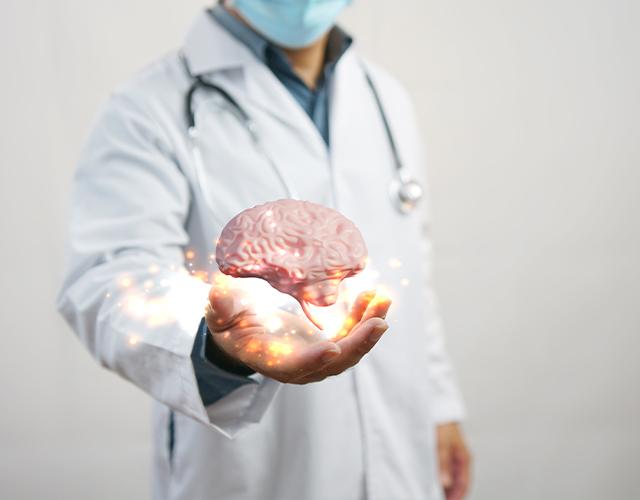
Craniosynostosis is a congenital condition where one or more cranial sutures fuse prematurely, affecting skull growth and brain development. Treatment involves surgical correction to reshape the skull and relieve pressure on the brain. Early intervention in infancy helps optimize outcomes and prevent associated complications like cognitive delays or facial deformities.
CSF Rhinorrhea
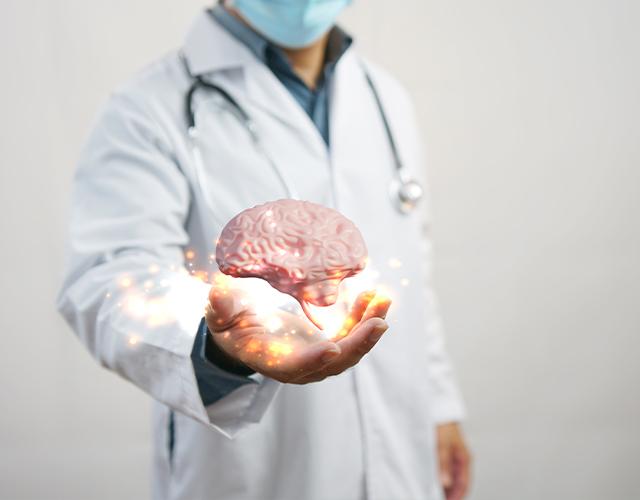
Cerebrospinal fluid (CSF) rhinorrhea is the leakage of CSF through the nose due to skull base fractures or surgical complications. It can lead to increased risk of infection and neurological complications. Management includes surgical repair of the skull base defect to prevent further CSF leakage and associated risks. Close monitoring is essential for successful recovery.
Dawson Disease

Dawson disease, or Dawson's fingers, are characteristic lesions seen on MRI scans of individuals with multiple sclerosis (MS). They represent areas of demyelination along nerve fibers in the brain and spinal cord. Diagnosis involves clinical evaluation and imaging studies to assess disease activity and progression. Treatment aims to manage symptoms and slow disease progression using medications and supportive therapies.
Technology
Meet Our Doctors
At Paras Hospital Darbhanga, our experienced Neurologists form the backbone of our commitment to exceptional brain health management. With a diverse array of surgical care, preventive techniques and numerous procedures, our doctors make some of the most patient-centric Neurologists.
Best Neurology Hospital in Darbhanga – Expert Brain & Nervous System Care at Paras Hospital
Your brain and nervous system control everything you do—from thinking and moving to breathing and feeling. When something goes wrong, you need expert care. At Paras Hospital, Darbhanga, our team of top neurologists and neurosurgeons is dedicated to diagnosing and treating a wide range of neurological disorders, from chronic migraines and epilepsy to strokes and spine conditions. Whether you're experiencing mild symptoms or facing a complex neurological condition, we’re here to provide the best care possible and help you get back to living a healthy, fulfilling life.
Why Choose Paras Hospital for Neurology in Darbhanga?
When it comes to brain and nerve health, experience and technology matter. Paras Hospital, Darbhanga, is home to some of the best neurologists and neurosurgeons in India, offering world-class treatment for neurological disorders. With state-of-the-art diagnostic tools, minimally invasive surgical techniques, and compassionate care, we ensure that you receive the most effective and personalized neurological treatment available.
- Top Neurology & Neurosurgery Experts in Darbhanga
- Advanced Brain Imaging & Diagnostics for accurate treatment
- 24/7 Emergency Stroke & Trauma Care for quick response
- Minimally Invasive Spine & Brain Surgery for faster recovery
- Dedicated Neuro-Rehabilitation & Physiotherapy Services for long-term well-being
At Paras Hospital, we believe in treating the person, not just the condition. Our goal is to help you recover and return to a normal, active life as quickly as possible.
Comprehensive Neurology Services at Paras Hospital
Our neurology and neurosurgery departments provide advanced treatments for a wide range of brain, nerve, and spine disorders. No matter what neurological issue you're facing, we offer expert solutions tailored to your condition.
Stroke & Neurovascular Care
A stroke is a medical emergency that can lead to serious disability if not treated immediately. Our stroke specialists in Darbhanga provide rapid diagnosis, clot-busting treatments, and emergency stroke surgery to restore blood flow to the brain and minimize damage. Our stroke rehabilitation team ensures the best possible recovery after treatment.
Epilepsy & Seizure Management
If you or a loved one is experiencing frequent seizures, our epilepsy specialists can help. We offer advanced epilepsy diagnosis, medication therapy, and epilepsy surgery such as Vagus Nerve Stimulation (VNS) and Deep Brain Stimulation (DBS) to help patients manage their condition and improve their quality of life.
Spine & Neurosurgery
Chronic back pain, spinal cord injuries, herniated discs, and scoliosis require expert care. Our spine specialists provide minimally invasive spine surgery, spinal decompression, and artificial disc replacement to relieve pain and restore movement. If surgery is needed, our top neurosurgeons in Darbhanga ensure safe and effective treatment with shorter recovery times.
Parkinson’s Disease & Movement Disorders
Patients with Parkinson’s disease, tremors, or movement disorders can benefit from our specialized treatments, including Deep Brain Stimulation (DBS), botox injections, and personalized physiotherapy programs to improve mobility and quality of life.
Migraine & Headache Treatment
If you're suffering from chronic migraines or severe headaches, our headache specialists conduct detailed evaluations to identify triggers and provide long-term relief through medications, nerve-block therapies, and lifestyle modifications.
Neuro-ICU & Critical Care
For patients requiring intensive neurological care, our dedicated Neuro-ICU is equipped with the latest technology to monitor and manage severe strokes, brain injuries, and coma cases. Our 24/7 emergency neurology team ensures immediate care for critical patients.
Memory & Cognitive Disorders
Struggling with memory loss, confusion, or difficulty concentrating? Our neurologists specialize in diagnosing and treating Alzheimer’s disease, dementia, and other cognitive disorders, offering personalized treatment plans to help patients maintain independence and brain function.
Paediatric Neurology
Children with neurological disorders require specialized care. Our paediatric neurology specialists treat epilepsy, autism, cerebral palsy, developmental delays, and genetic brain disorders with advanced therapies and compassionate care tailored for young patients.
Cutting-Edge Neurology Technology for Better Diagnosis & Treatment
At Paras Hospital, Darbhanga, we combine medical expertise with the latest technology to ensure precise diagnosis and effective treatment. Our advanced diagnostic tools include:
- MRI & CT Scans – High-resolution brain and spine imaging for accurate diagnosis
- Electroencephalogram (EEG) – Measures brain activity to detect epilepsy and seizures
- Nerve Conduction Studies (NCV & EMG) – Evaluates nerve and muscle function
- 3D Brain Mapping – Assists in minimally invasive brain surgeries for greater precision
- Transcranial Doppler (TCD) – Assesses brain blood flow to prevent stroke risk
With these advanced neurology tools, our specialists can accurately diagnose and provide customized treatment for each patient.
Meet Our Expert Neurology Team
At Paras Hospital, Darbhanga, we have some of the best neurologists and neurosurgeons in India with years of experience in treating complex brain and nervous system disorders. Whether it’s a mild neurological condition or a high-risk brain surgery, our specialists take the time to listen to your concerns, explain your treatment options, and ensure the best possible outcome.
Our Approach to Neurological Care
At Paras Hospital, we focus on YOU—not just your condition. Our holistic approach ensures that you receive personalized, compassionate, and effective care.
Step 1: Thorough Consultation & Diagnosis – We begin with a detailed evaluation, including neurological tests and advanced imaging to identify the exact cause of your symptoms.
Step 2: Personalized Treatment Plan – Our specialists create a customized treatment approach, whether it’s medications, physiotherapy, minimally invasive procedures, or neurosurgery.
Step 3: Recovery & Rehabilitation – After treatment, we offer comprehensive neuro-rehabilitation programs, including physiotherapy, speech therapy, and cognitive therapy to help you regain strength and function.
Our patient-centered care ensures you receive the best neurology treatment in Darbhanga, with a focus on long-term recovery and well-being.
Why Choose Paras Hospital for Neurology in Darbhanga?
- Highly Experienced Neurologists & Neurosurgeons dedicated to advanced patient care
- State-of-the-Art Neurological Diagnostics for accurate diagnosis and treatment
- 24/7 Emergency Stroke & Neuro-Trauma Care for immediate intervention
- Minimally Invasive Brain & Spine Surgery for faster recovery
- Personalized Rehabilitation & Follow-Up Programs to ensure long-term health
Take the First Step Towards Better Neurological Health
Your brain and nervous system are too important to ignore. If you’re experiencing frequent headaches, memory problems, balance issues, seizures, tremors, or chronic back pain, don’t wait—early diagnosis and treatment can make all the difference.
📞 Call us now to book an appointment
🌐 Visit our website for online consultation scheduling
🏥 Walk into Paras Hospital, Darbhanga, and consult the best neurologists today
At Paras Hospital, Darbhanga, we are committed to helping you regain control of your health and live a pain-free, active life. Get expert neurological care today!
FAQ's
Are there any healthcare packages and screening packages for cancer care at Paras Health Darbhanga?
Yes, we have screening packages designed for early detection and prevention of cancer. Regular screenings are especially helpful if you have a family history or other risk factors.











